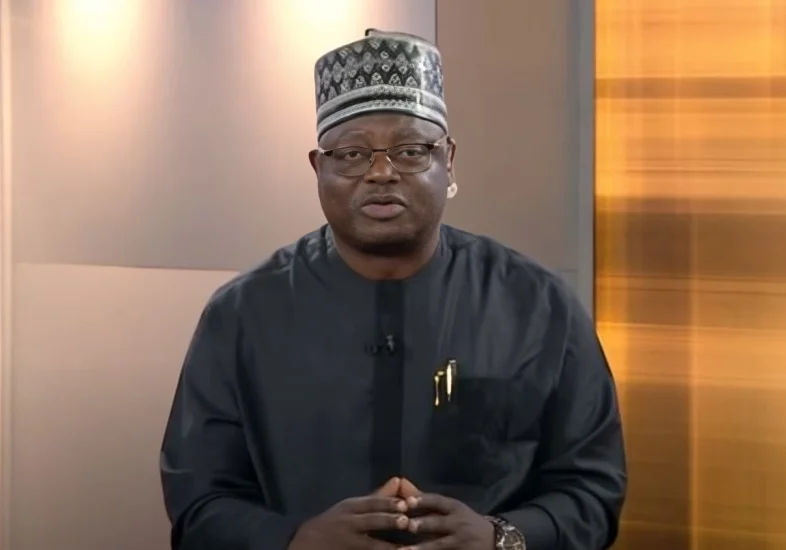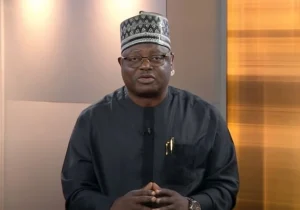
POVERTY WILL WORSEN IF PETROL SUBSIDY RETURNS – NOA BOSS

On Wednesday, the Director-General of the National Orientation Agency (NOA), Lanre Issa-Onilu, urged Nigerians to map out survival strategies amid the economic fallout of the removal of petrol subsidy by the President Bola Tinubu administration.
Issa-Onilu, a former spokesman for the President’s ruling All Progressives Congress (APC), said poverty will worsen if petrol subsidy is returned, as being demanded by #EndBadGovernance protesters in the last week.
“Anybody who is making a demand that subsidy removal should be brought back is making an emotional demand, not an economic demand because you have to also prove that if it is brought back, it will solve the issue of poverty; it will not, it will aggravate it,” Issa-Onilu said on Channels Television’s Sunrise Daily breakfast show.
“So, what we should be doing is: How do we survive in spite of the removal?’ We need to promote all the efforts of this government to ensure that we survive without that subsidy.”
He also admitted the trust deficit between leaders and followers in the country due to repeated cases of broken promises over the years.
Issa-Onilu, who addressed information managers, said, “It is difficult to talk to a people who have for several years been let down. Nigerians feel let down. The first question they ask you is: ‘Is this another promise that will not be kept?’ So, we must prove to Nigerians that this government is keeping to its promises.”
‘Painful But Necessary’
On Sunday, President Bola Tinubu ruled out the return of subsidy on Premium Motor Spirit (PMS) famously known as petrol.
In a broadcast to over 200 million Nigerians after days of unbroken nationwide #EndBadGovernance protests economic hardship, the President said the removal of subsidy on petrol was a painful but necessary decision he took for economic reforms.
The return of petrol and electricity subsidies has been some of the very clear demands of young Nigerians who took to the streets since Thursday to protest the economic woes confronting the country.
Subsidy Back?
Nigeria, Africa’s most populous nation, faces energy challenges, with all its state-owned refineries non-operational. The country is heavily reliant on imported refined petroleum products, with the state-run NNPC being the major importer of the essential commodities.
Fuel queues are commonplace in the country. Prices of petrol tripled since the removal of subsidy in May 2023, from around N200/litre to about N700/litre, compounding the woes of the citizens who power their vehicles, and generating sets with petrol, no thanks to decades-long epileptic electricity supply.
The government simultaneously unified forex windows, with the value of the naira nosediving terribly from $1/N700 to over $1/1600 at the parallel market. Prices of food and basic commodities immediately climbed through the roof as Nigerians battled attendant inflation.
With the forex crisis bedeviling the country’s economy, oil marketers blurted that the landing cost per litre of imported petrol has risen above N1,000 but the commodity is being sold for around N700, depending on the part of the country, suggesting that the government covers the price gap.
Back in July, labour leader Joe Ajaero said workers settled for N70,000 as the new minimum wage and rejected President Bola Tinubu’s offer to pay workers N250,000 as minimum wage on the condition that he would increase fuel prices, suggesting a return of the subsidy regime.
The World Bank and the Chief Executive Officer and Managing Director of Pinnacle Oil and Gas Limited, Robert Dickerman, had claimed that the Federal Government is still paying subsidy for the product.
Human rights lawyer, Femi Falana, had also challenged the Federal Government to “without any further delay, confirm or deny the serious allegation and end the opacity surrounding the importation of fuel from foreign countries”.
But the state-run NNPC has time after time insisted that petrol subsidy has been completely removed.
![]()
